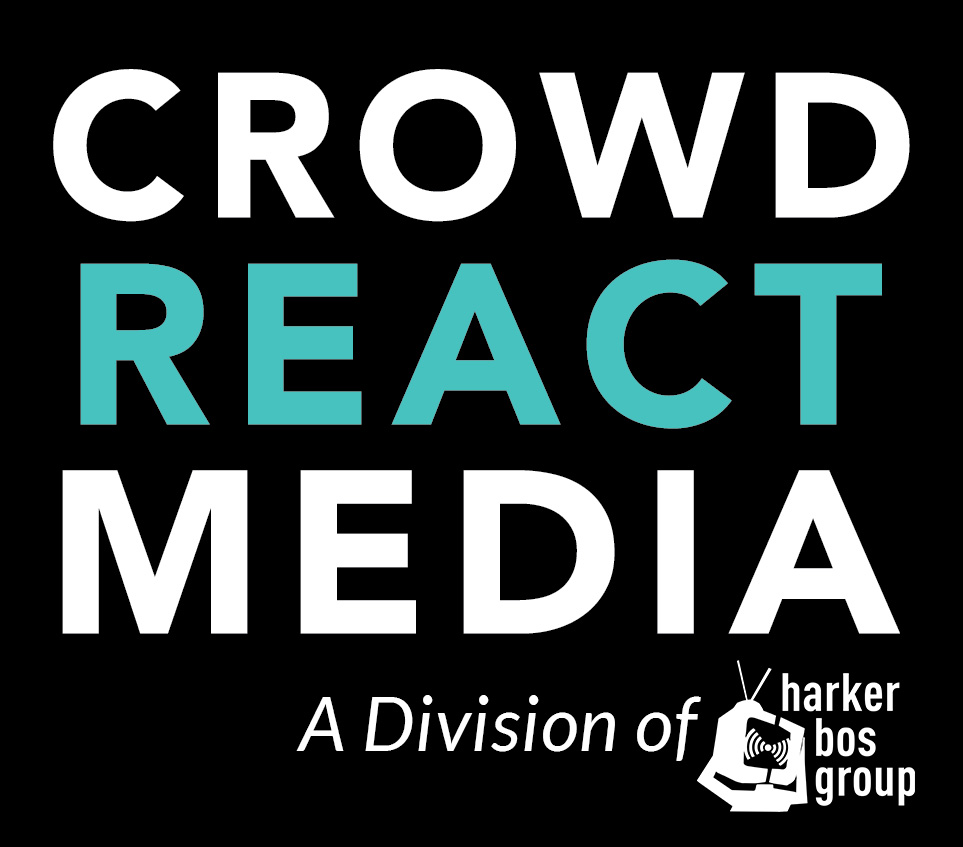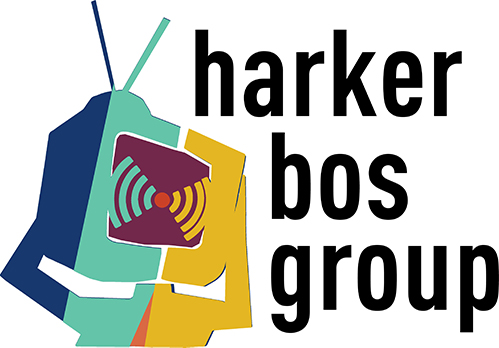Weekly Roundup – Week of December 19, 2022
Sports Media & Sports Betting News
Sports Media Rights Could Surpass $60B Globally by 2024
"Media rights for live sports are more valuable than ever.
Their global value has reached $55 billion in 2022 and is expected to surpass the $60 billion mark in the next two years.
Live sports have become a valuable commodity thanks to expensive contracts with major networks and streaming services, including domestic rights deals for the NFL and Indian Premier League.
In 2021, the combined global value of all sports media rights was $54.45 billion.
The NFL is No. 1 in the world, holding 15% of the sports media rights market in 2022.
Roughly 97% of income from the NFL’s media rights deals is domestic.
In 2021, the NFL finalized media rights deals with CBS, NBC, Disney, FOX, and Amazon worth a collective $113 billion over 11 seasons.
As part of the deals, Amazon received exclusive rights to “Thursday Night Football” — the first time a tech company has held exclusive NFL rights.
CBS retained its AFC package for Sundays, while Fox kept the NFC Sunday package it has held since 1994. Disney kept “Monday Night Football” on ESPN, and NBC retained rights to “Sunday Night Football.”"
The Next Big Bet For Global Streaming Services: Live Sports
"In 2021, Viacom18, a media conglomerate jointly owned by billionaire Mukesh Ambani, spent an estimated $50 million to secure the digital rights to stream the FIFA World Cup in India on his service, JioCinema. But, on November 20, as the tournament’s first match started, the JioCinema app stumbled. The stream lagged and buffered, frustrating fans. Within hours, #JioCinema began trending on Twitter, with thousands of users tweeting about the platform’s choppy stream.
JioCinema is just one of over a dozen streaming platforms around the world exploring and investing in streaming live sports. In Indonesia, local streamer Vidio outpaced Netflix in subscription growth in the second quarter of this year due, in part, to the platform acquiring streaming rights for the English Premier League. In Latin America, the relative newcomer Vix+, owned by television network TelevisaUnivision, has secured streaming rights in Mexico to football events like the 2022 FIFA World Cup, as part of a bid to pull subscribers from Disney+ and Netflix. In Japan, live TV service Abema broke its audience records this month thanks to its licensing rights for the FIFA World Cup.
...
In 2022, Netflix, Paramount+, and Hulu experienced significant declines in subscribers at some point. Though Disney+ gained 12.1 million subscribers during the third quarter of 2022, the company’s financial losses more than doubled compared to the same period last year.
Experts believe expanding content offerings, including pursuing live sports, is a way to find new customers.
“[Sports streaming] is entirely a subscription play,” Ashish Pherwani, India leader for media and entertainment at EY, told Rest of World, explaining the rationale behind the race to win digital sports streaming rights. “What sports does is it makes people pay. A sports fan will pay to watch [their favorite sport].”
Since early 2022, Netflix has pursued new revenue streams such as introducing ad-supported subscriptions and ways to cut its losses through a global crackdown on password sharing. “I’m not saying we never would do sports, but we would have to see a path to growing a big revenue stream and a big profit stream with it,” Netflix co-CEO Ted Sarandos had said during an earnings call in April.
In June, Insider reported that Netflix had been in talks “for months” to acquire the media rights to stream the Formula One racing circuit. (Ultimately, Disney’s ESPN won the rights.)"
Unpacking Barstool Sportsbook's Alleged Ohio Sports Wagering Violation
"Wednesday continued a tumultuous stretch for PENN Entertainment and its Barstool Sportsbook, as the Ohio Casino Control Commission (OCCC) brought up a notice of violation against the company for allegedly targeting college students in advertising.
Last week, the Massachusetts Gaming Commission (MGC) delayed a decision regarding a retail sports betting license for PENN Entertainment’s Plainridge Park. That decision came after controversial Barstool Sports founder Dave Portnoy came under fire in a New York Times article that referred to him as a “degenerate gambler.”
Part of the MGC’s concern with PENN Entertainment/Barstool Sportsbook, which relies on Portnoy to promote the sportsbook, stemmed from him visiting the University of Tennessee for a football game earlier this season. During his off-campus visit, he discussed wagering $100,000 on the team’s opponent, Georgia, to win the national championship. Some MGC commissioners expressed concern about his effect on a young audience and glorifying large wagers.
“I’m disturbed by that,” MGC Commissioner Eileen O’Brien said.
...
The OCCC notice of violation states that the Barstool College Football Show visited the University of Toledo’s campus on Nov. 15. During the show, Barstool promoted pre-registration for Barstool Sportsbook, which is expected to launch in Ohio when legal wagering goes live widely in the state on Jan. 1.
The Barstool College Football Show usually draws an engaged live audience, and the event in Toledo even brought out Toledo Mayor Wade Kapszukiewicz. The mayor gave Dan Katz, a Barstool Sports personality, a key to the city of Toledo toward the end of the show. Kapszukiewicz also poked fun at Portnoy, a University of Michigan alumnus, about the Ohio State-Michigan rivalry.
The mayor and the show’s four hosts all picked Toledo, which was a 14.5-favorite against Bowling Green, to win. The Rockets lost the game outright, falling 42-35.
It was during the mayor’s appearance and before picking the games that the show’s hosts shared information on pre-registration for the Barstool Sportsbook. According to the OCCC, the advertisement violated Ohio law and targeted people under the age of 21. As a result, PENN Entertainment could have to pay a fine of $250,000, although the company may appeal the violation and have a hearing with the OCCC."
Amazon May Have Proved It Can Stream NBA, Too
"The biggest sports media question in 2023 will be if the NBA will join forces with a tech streaming giant such as Amazon or Apple.
Given its performance in its first exclusive season showing the NFL’s “Thursday Night Football,” Amazon’s NFL host Charissa Thompson “absolutely” believes the tech giant can handle an NBA rights package.
The NBA will be seeking $50 to $75 billion long-term in its next cycle of media rights negotiations.
The league’s incumbents, Disney’s ESPN and Warner Bros. Discovery’s Turner Sports, both want to retain their rights. Although Warner Bros. Discovery boss David Zaslav set the industry buzzing by publicly warning, “We don’t have to have the NBA.”
When the deals with ESPN and Turner Sports expire following the 2024-25 season, the networks would have paid a combined $24 billion.
During its first season exclusively streaming TNF, Amazon Prime Video has built an All-Star announce team, including game-callers Al Michaels, Kirk Herbstreit, and Kaylee Hartung. Plus, studio analysts Thompson, Tony Gonzalez, Richard Sherman, Ryan Fitzpatrick, and Andrew Whitworth, features reporter Taylor Rooks and news analyst Michael Smith for the pregame, halftime, and postgame shows.
Through its first 13 TNF streams this season, Amazon is averaging 9.67 million viewers, according to Nielsen. TNF on Prime viewers have a median age of 47 years old — eight years younger than the NFL average on broadcast networks.
“If there’s ever a precedent to support that (Amazon) can do it, all we have to point to is covering the largest sport in our country — and doing it at the high level,” Thompson told Front Office Sports."
News & Political Media News
Americans Differ By Party, Ideology Over The Impact Of Social Media On U.S. Democracy
"Americans are more critical than people in any other country surveyed by Pew Research Center this year of the impact that social media has on democracy. Nearly two-thirds (64%) of U.S. adults say social media has been more of a bad thing than a good thing for democracy in the United States. Though this negativity generally persists in both parties, there are significant partisan and ideological differences in the strength of this view and others related to social media and politics.
About three-quarters of Republicans and Republican-leaning independents (74%) say social media has been more of a bad thing for U.S. democracy, compared with a smaller majority of Democrats and Democratic leaners (57%).
On balance, Republicans offer more negative evaluations than Democrats of the impact of social media on American society. They are less likely than Democrats to say social media is an effective way to raise public awareness about political or social issues (71% vs. 83%) and create sustained social movements (65% vs. 79%). Republicans are also less likely than Democrats to say social media can effectively get elected officials to pay attention to issues (51% vs. 64%). There are no partisan differences when it comes to whether social media can actually influence policy decisions or change people’s minds about political or social issues."
Fox News' 'The Five' Topples 'Tucker Carlson Tonight' To Become New Cable News Ratings Leader
"Nielsen data for 2022 rank the Fox News round table program “The Five” as the most watched show in cable news with an average of 3.5 million viewers.
The figure tops “Tucker Carlson Tonight,” which averaged 3.3 million viewers for the year. The figure for the Fox News prime-time show is up 3% over 2021 when it was the most watched program for the year.
But “The Five” grew more, up 17% over 2021. The program, which airs live at 5 p.m. Eastern and 2 p.m. Pacific, is also the first cable news show outside of prime time to finish the year on top.
The only non-sports cable program with a larger audience than “The Five” is Paramount Network’s hit drama “Yellowstone.”
“The Five” features conservatives Jesse Watters, Dana Perino, Jeanine Pirro and Greg Gutfeld along with a rotating chair shared by three liberal commentators, Jessica Tarlov, Harold Ford and Geraldo Rivera.
While it’s often a four-to-one pile-on, “The Five” bills itself as the only forum on cable news where personalities with opposing views are seen debating issues on a regular basis. The program, which launched in 2011, has succeeded in attracting viewers who politically identify as Democratic or independent.
Cable news audiences have become more tribal in recent years, with conservatives flocking to Fox News while liberals camp out at MSNBC.
CNN has tried to strike more of a balance with an effort to book more Republican officials on its programs, as executives at parent firm Warner Bros. Discovery believe the network was pulled too far left during Donald Trump’s years in the White House."
Local News Faces A Political Future As The JCPA Falls Foul Of Lobbyists
"It has been a big week for journalism funding in the United States. Or rather it could have been a big week. The Journalism Competition and Preservation Act, a bill designed to provide a limited time ‘safe harbor’ for some news organizations to collectively bargain with platforms for payments, notably Google and Meta, was alive on Monday and dead by Tuesday evening. It lasted less time than a British Prime Minister, or a warm lettuce, tacked onto the must-pass National Defense Authorization Act defense spending bill. The reasons for its rapid removal lie in a strong bi-partisan and well-funded lobbying effort to kill it. Repeating what was an unsuccessful tactic against similar legislation in Australia, and again in Canada, Meta said they would have no option but to pull news from Facebook if the Bill passed.
The regulatory landscape in the US suggests that a Bill like the JCPA would be difficult to pass. Google and Meta are both very active and wealthy lobbyists, who targeted the provisions of the Bill in both this and former iterations. Surprisingly perhaps many journalists and some journalism trade groups also went on the record to oppose the bill, such as the Local Independent Online News publishers, who work closely with Google to distribute their journalism program funds. A fair number of the trade and civil society organizations opposing the legislation are themselves recipients of at least some funding or close commercial partnerships from Google or Meta over the past five years. The lack of clarity in who funds which organization makes the evaluation of potential legislative fixes in the US particularly difficult to gauge.
But with the JCPA dead, with Meta withdrawing from almost all journalism funding activities, and the alternative potential federally mandated funding sources unlikely to pass in a Republican controlled House, the question remains who or what will support the gaps in local journalism funding? In 2023, after a brief respite in 2020 to 2022, the economic omens are again looking bleak for news journalism. This week even the New York Times guild members went on strike and the Washington Post, owned by multi billionaire Jeff Bezos, announced the closure of its Sunday Magazine with attendant layoffs. A week earlier CNN and Gannett had also announced sweeping staff cuts. But as the recognized professional field of journalism shrinks, the material which is filling gaps grows."
Recent Blogs from Crowd React Media & Harker Bos Group
HBG Media Minute: Christmas 2022 Music Study Pt. II: Age Demographics
In his latest Media Minute, Sean revisits last week's Christmas 2022 Music Study, with emphasis given to age demos.


